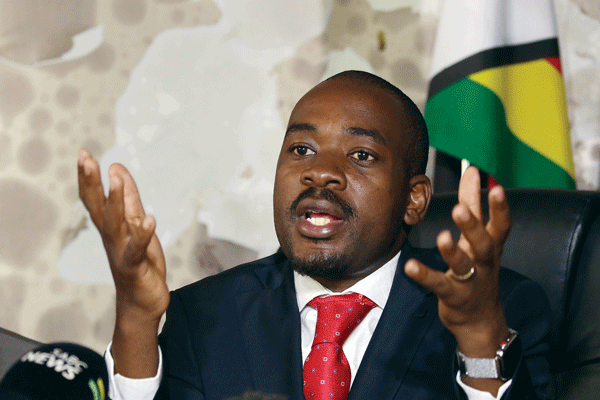
THE MDC Alliance leadership is reported to be initiating new coalition talks with other opposition parties and interest groups in readiness for the 2023 national elections. What problems are likely to be encountered by this coalition? At the same time, what are the prospects for the need for a collective search for new alternative form of governance in Zimbabwe?.
Austin Chakaodza
This article is designed to identify the reasons for the failure of the opposition parties to search for a viable alternative governance for Zimbabwe.
Equally, it is also aimed at highlighting exciting opportunities and prospects for change if the opposition parties can close ranks and collaborate in creating a coalition movement driven by the desire to solve societal problems over those ends which define personal ambitions and interests.
I have written this article not only as an analyst of Zimbabwean politics but as having been an active political participant over a number of years.
The opposition forces in Zimbabwe strongly believe that the introduction of governance reforms is the most important prerequisite in the process of political change. Yet to date the government is unwilling to embark on meaningful political and electoral reforms.
It is strongly submitted that the electoral system in the statute books cries aloud for redress for it stinks from earth to high heaven.
A democratic system must ensure that political contestants participate in the national elections on an equal footing. It must accept fully the concept of the equality of the ballot and must allow the same to serve its intended purpose.
- Chamisa under fire over US$120K donation
- Mavhunga puts DeMbare into Chibuku quarterfinals
- Pension funds bet on Cabora Bassa oilfields
- Councils defy govt fire tender directive
Keep Reading
However, the institutions of governance in Zimbabwe today are wholly at variance with democratic procedures and practices.
The government responds to electoral and political reforms with a familiar formula of threats, bans on public demonstrations and other heavy-handed methods.
The internal security apparatus still retains a residual capacity to instil fear, discourage open debate and prevent mobilisation. Under these circumstances, the opposition forces are faced with great obstacles towards meaningful political change.
The foregoing are some of the problems faced by opposition political parties in their efforts to bring about change on the political landscape. Other problems include the role of the broadcasting media which raises significant concerns.
State controlled television and radio largely ignore the views of the opposition and give prominent courage to the campaigns of Zanu PF, in the guise of reporting the activities of the President in his capacity as the Head of State. The government-controlled print media editors often edit reports about opposition parties’ campaigns and even censor them for political reasons.
From the preceding, it is clear that there is a need to debate and formulate the rules that determine the fair conduct of elections, including open access to the media during election campaigns, equal weighting of votes, transparency in vote counting and setting the electoral process in its legal and institutional context. This can only be done and achieved if all opposition parties are united.
Therefore, building a coalition of opposition parties requires a holistic approach.
If change is to be realised, it must be driven by the desire to improve the life of the suffering public through re-engineering the economy so that once more, the pressing problems of poverty and backwardness are addressed aggressively and put Zimbabwe back on rail.
Opposition parties themselves have their own problems to deal with.
The biggest perception in political circles is that it is increasingly becoming clear that the opposition is feeble, disorganised, lacks vote mobilisation techniques or strategies, confidence in mobilising for change.
The biggest test is, therefore, going to come when any coalition of opposition parties is going to capture the “imagination” of the electorate.
Political analysts attribute the failure of the opposition to lack of resources, organisational capacity, credibility and transparency.
It must be noted that the ruling party has survived, among other things, because it has unrestricted access to the State-controlled media both print and electronic to sell its message which the opposition feels it doesn’t have.
These media institutions have been made the strongholds of the Zanu PF campaigns, giving the party a head start.
Political analysts also ascribe the opposition failure to lack of credible alternative political, economic and social policies tailor made for the masses. There are no clear economic programmes to cause a threat to the ruling party. Political leaders and their parties must accept that unless they come up with good structures, credible policies and sustainable programmes, the people of Zimbabwe will not move an inch towards the direction of change.
Another unfortunate scenario that often derails opposition parties from consolidating their gains is to do with infiltration by State security agents.
They are now a plethora of small political parties which have dismally failed to mount a serious challenge to Zanu PF. Some of these so-called opposition parties are actually agents of the State.











